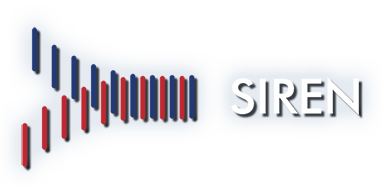SIREN Fellowship Application Link
SIREN Monthly Didactic Calls for Fellows and Colleagues
Background:
The development of clinical trialists is a complex process. In contrast to bench research and non-interventional clinical research, the emergence of researchers skilled in trial design, operations, and dissemination tends to be a less linear process. Certain aspects of learning to be an effective trialist lend themselves to an apprenticeship model; current grant review and funding procedures provide limited opportunities for junior investigators (who might be perceived as not experienced enough to work on large-scale trials). The SIREN network has an opportunity to provide mentorship to emerging researchers who will be the future leaders of emergency research in neurologic, heart, lung and blood conditions.
Currently, two other NINDS funded networks have funded fellowship programs that are tied to the regional coordinating centers / hubs. These programs focus on development of faculty and fellows in clinical research.
In the DCC awards, graduate students and post-docs are typically funded for 20 hours a week to assist and learn. Potentially future CCC grants could include funding for a “to be named” co-investigator who would be one of the fellows.
Concept:
SIREN currently has four ongoing trials, along with others in the development pipeline. We anticipate the fellows would be embedded into the leadership teams of these ongoing trials. The trial and network PIs would work with the fellows to determine the roles and responsibilities. Each fellow would be placed on a trajectory to generate at least one peer-reviewed manuscript related to the experience. We anticipate the fellows will attend approximately 3-4 hours of weekly operational and planning calls and be involved in additional projects focused on planning, operations, and interpretation of the trials. Fellows would have additional expectations (present at SIREN journal club, and other opportunities tailored to individual goals) during the experience. Additionally, the fellows would be involved in the planning on new trials being considered by the network.
Candidate Characteristics:
Candidates for the fellowship could be residents with protected time for research, fellows (in ACGME and non-ACGME programs), and early-career faculty with an interest in patient oriented emergency care research. Knowing that there are a variety of career pathways, there is not a specific time limit from completion of training in order to be eligible.
Anticipated Impact on Career Development:
While this experience is new, we hope to positively impact the trajectory of promising early career investigators or other investigators making a pivot towards interventional clinical trials. This experience will allow the fellow to understand the life-cycle of multicenter clinical trials. A variety of potential trajectories could occur reflecting the diversity of pathways for clinical trialists. These could include initial service as funded co-investigator with progression to being a multiple-PI on future trials; other pathways include a better understanding of how to design and operate an early phase trial to justify larger trials or service as a site PI or hub PI.
Application Process:
Interested candidates should submit a biosketch with a personal statement indicating motivations and interest. Please be sure to cover what you hope to gain from this experience up front in your personal statement. The SIREN - ETC and leadership will review applications and request additional information, including potential letters of support from departmental leadership / supervisor of the fellow.
Timing:
Fellows will be accepted on a rolling basis. We anticipate one-year terms. Start dates can be negotiable based on availability of blocks of time based on the fellow schedule. Multi-year experiences are possible contingent upon availability of on-going trials. We anticipate a maximum of two fellows on any trial, but for the initial terms anticipate focusing on one. After finishing the fellowship, there may be opportunities for the investigator to become a co-investigator on the national grant or a site PI.
Funding:
There is no direct funding at this time from the SIREN CCC, DCC or hub infrastructure. This experience could be built into planned or funded K-type awards. Eligible fellows who qualified for NIH administrative supplements to promote diversity in health research PA-20-222 (https://grants.nih.gov/grants/guide/pa-files/PA-20-222.html) are encouraged to apply and the PIs of specific SIREN trials would help interested applicants prepare competitive applications for that program as supplements to the existing trials. In addition, the partnership with external organizations (Neurocritical Care Society, Society for Academic Emergency Medicine, American Academy of Neurology or others) as a platform for career development awards is encouraged. No specific external funding is required to participate however, simply that the fellow has 3-6 hours per week to dedicate to this experience for a 1 year term.
